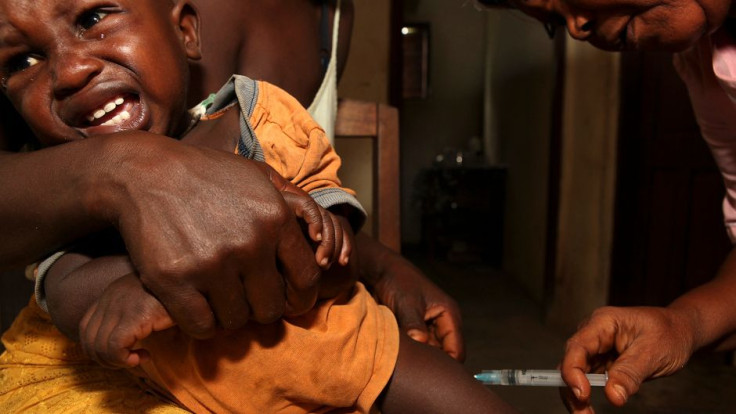Diphtheria Resurfaces In South Africa: Rare, Contagious Disease Kills 1 Child, Infects Others In Durban With No Vaccines On Hand

A rare and deadly disease has resurfaced in the coastal city of Durban after more than two decades, South African health officials said in a statement this week. One child has died after being infected with diphtheria, a highly contagious bacterial disease. Two more children were infected and critically ill, and three others were “strongly suspected” of having the disease, local media said Wednesday.
“One was admitted to hospital this past weekend. This patient and another were being treated in a public hospital. The third case is in a private hospital. We say suspected because although there has been a clinical diagnosis, lab tests are yet to confirm it,” the National Institute for Communicable Diseases (NICD) in South Africa told the Daily News in KwaZulu-Natal province.
Diphtheria is an infection of the nose and throat that can be eradicated with successful immunization programs and is easily vaccine-preventable but requires booster shots. During World Immunization Week, the World Health Organization called for renewed efforts to get global vaccine efforts back on track. One in five children still misses out on routine life-saving immunizations, and 1.5 million people die each year from preventable diseases worldwide.
Only four cases of diphtheria have been reported in South Africa since 2000, and there are no reported cases since 2005. The last case reported in Durban was 26 years ago, according to the Daily News. South Africa and many other countries did not keep supplies of diphtheria antitoxin therapy (DAT), which neutralizes the bacteria, because the disease was so rare.
“Unfortunately, there are currently few manufacturers of DAT globally and supplies are limited to few facilities/institutions worldwide,” the NICD said. “South Africa does not stock any supplies of DAT, and it must be sourced from overseas suppliers on a case-by-case basis.”
Although the disease is uncommon in South Africa, health officials are concerned the potentially lethal illness could resurge as it has in other parts of the world in the past decade, including Eastern Europe, Southeast Asia, South America and the Indian subcontinent. Suspected cases should be given DAT while awaiting laboratory confirmation of a diagnosis, the NICD said.
“It is only stocked in India and Israel, and by the time the procedure to import it is complete, it may be too late, because the antibody only works if administered early,” Yacoob Coovadia, a clinical microbiology professor at the University of KwaZulu-Natal told the Daily News.
The mother of the 8-year-old boy who died from the disease in Durban said her son did not receive the second booster vaccine two years ago. The suspected cases of diphtheria also involved children between 8 and 9 years old who had not received booster doses, NICD said in a statement.
The young boy was taken to the hospital in KwaZulu-Natal province last month after having a fever for three days and a “bull neck.” Doctors had to perform an emergency tracheotomy because the boy’s tonsils were so swollen it was difficult for him to breathe. The boy’s condition improved under intensive care with antibiotics, but he later died from complications. Diphtheria can damage the heart, kidneys or nerves within two weeks, leading to heart failure, paralysis and even death.
“So even if the child initially survives because of proper care, they can still die from the damage caused to the body,” Coovadia told the Daily News on Wednesday.
© Copyright IBTimes 2025. All rights reserved.





















